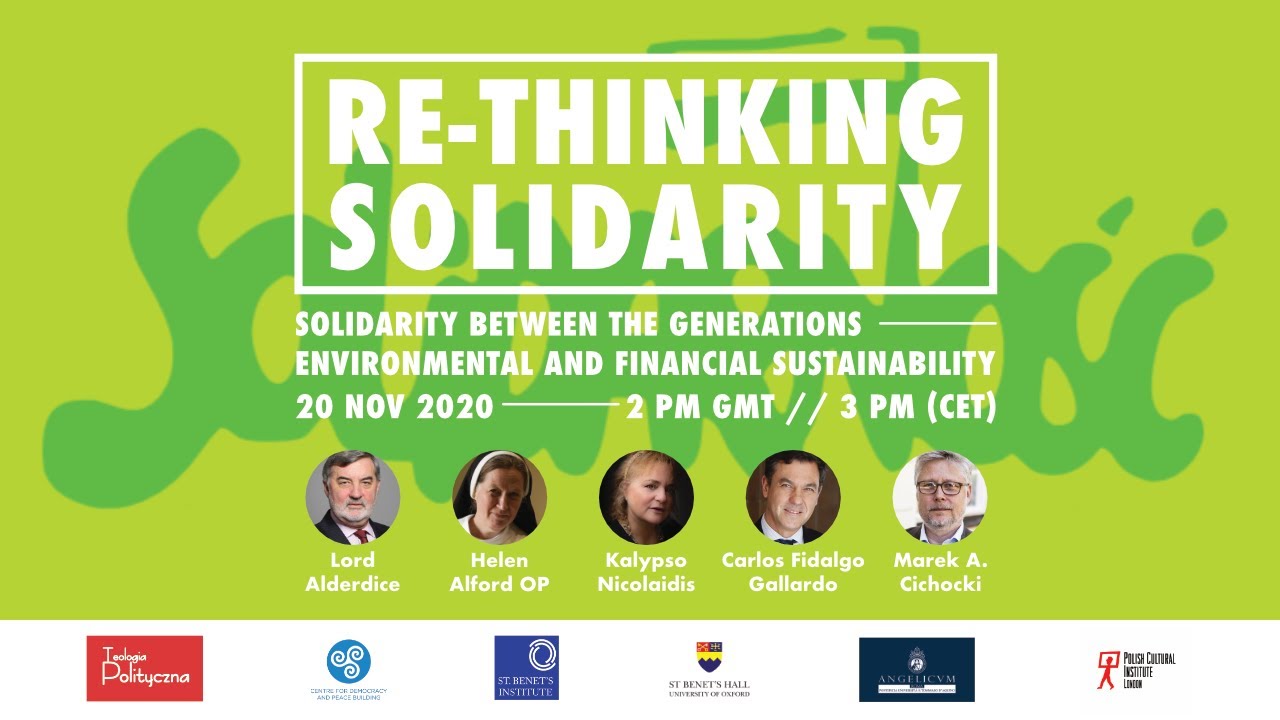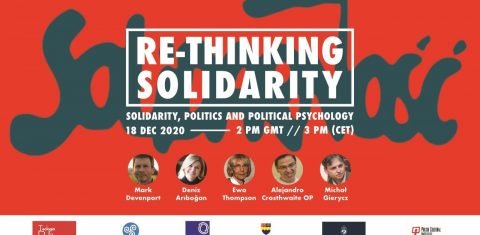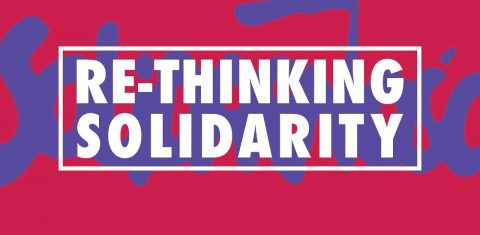The starting point of the speakers deliberations on the source and sense of interpersonal solidarity was the 40th anniversary of both the foundation of the ‘Solidarity’ trade union in Poland and John Paul II’s second encyclical Dives in misericordia. The concepts presented by the encyclical have become the theological and philosophical foundation for the understanding of the phenomenon and imperative of solidarity.
The first speaker was Sr. Helen Alford OP, who raised two main issues: firstly, the relationship between protecting the environment and balanced economic growth, and secondly, the essence and meaning of intergenerational solidarity. She pointed out that, since the early 1980s when Solidarity was founded, there has been a change in thinking, reflected in the perception of economic development and environmental protection as factors that are not mutually exclusive, but rather – in combination – are crucial to solve social problems. However, with respect to intergenerational solidarity, she highlighted a worrying trend where this is seen solely as the duty and responsibility of the younger generation towards the older. In this context, she pointed out that intergenerational solidarity is like a debt. We are not able to repay that which we have received from our elders, but we repay this debt by supporting future generations.
Solidarity is the fruit of using freedom in all interactions and relationships between people.
The next speaker was Carlos Fidalgo Gallardo, who – referring to the subject of the debate series – said that it was worth rethinking solidarity anew, considering each role that we play in life. He focussed on the understanding of solidarity in the context of freedom. First, he spoke about freedom as the awareness of one’s own existence and the mirror (speculum) in which we project a future ‘better version of ourselves’. Solidarity, he believes, is the fruit of using freedom in all interactions and relationships between people. He explained that it is a combination of the effort of freedom to achieve a common, greater good, that includes the future.
At the beginning of his presentation, Marek A. Cichocki described the issue of solidarity between the generations as one of the most explosive problems in Europe. He listed three challenges that intergenerational solidarity has faced in recent years that cannot go without response. Firstly, the financial crisis, which undermined the belief in the functioning of solidarity mechanisms through a market society. Secondly, the pandemic, which has particularly hit the relationships between older and younger people, created new tensions, but is also a unique opportunity to demonstrate solidarity, and thirdly, the climate crisis, especially appealing for young generations, because it directly relates to their future. He also highlighted the role of the family, which is the most important field where we can experience and practice intergenerational solidarity. “It is there that we face its difficulties, the necessity of choice and denial, and the essence of rights and obligations,” he said.
The last to speak was Kalypso Nicolaidis, who referenced all the previous contributions in her presentation. She pointed to three tensions that arise with respect to solidarity, environmental protection, and sustainable development. Firstly, political activity, which on the one hand is an expression of acting on behalf of others, including future generations, but is also subject to the tyranny of “now”. Secondly, the tension between thinking in long-term and short-term categories. Finally, she raised the issue of solidarity in the context of European integration, asking whether solidarity can be effectively implemented at a European Union level.
Summary: Konstancja Pikus




